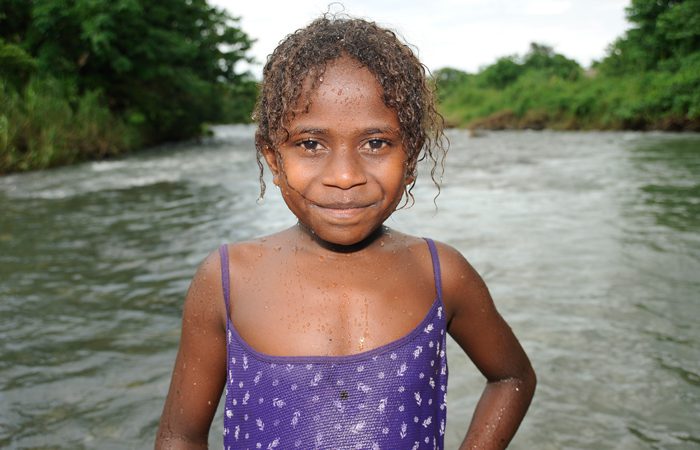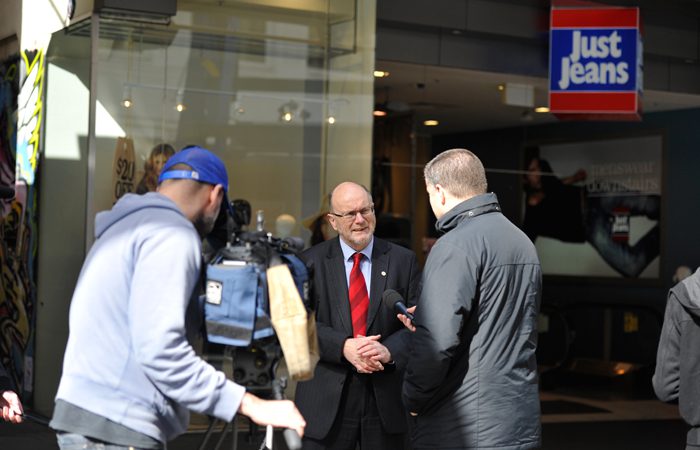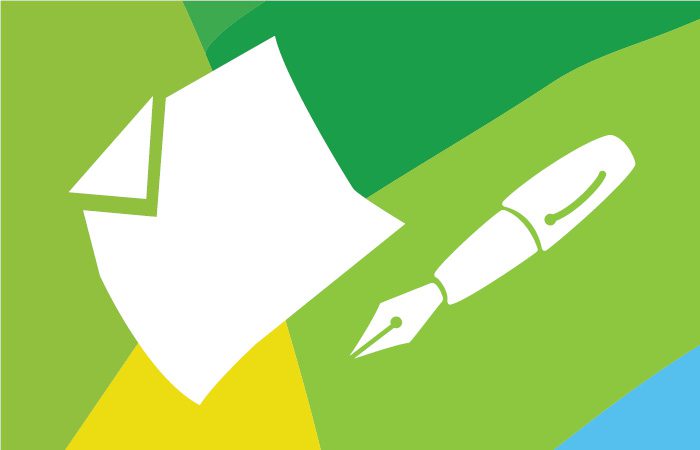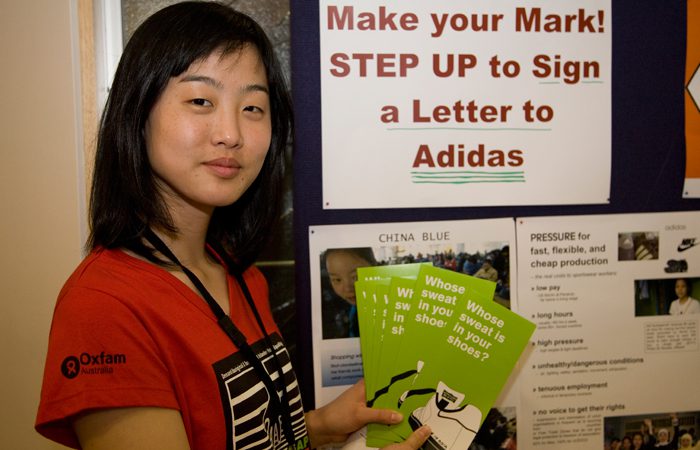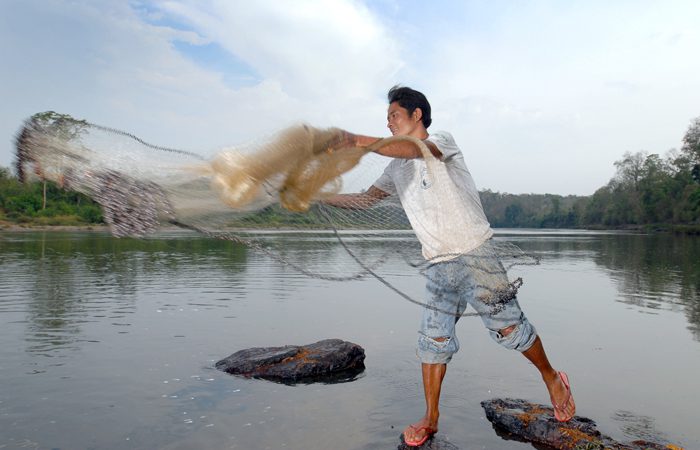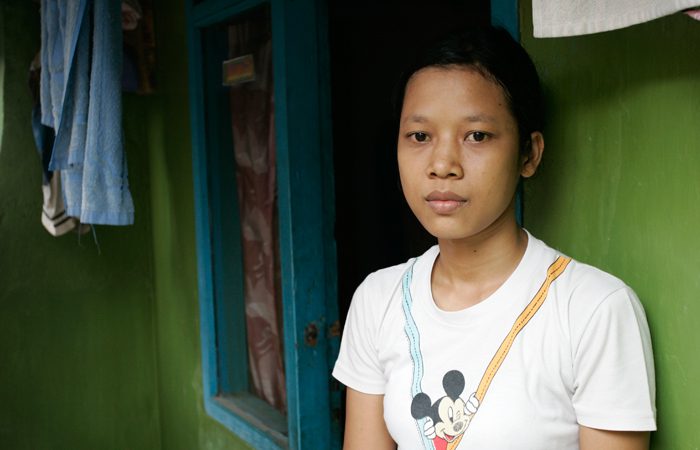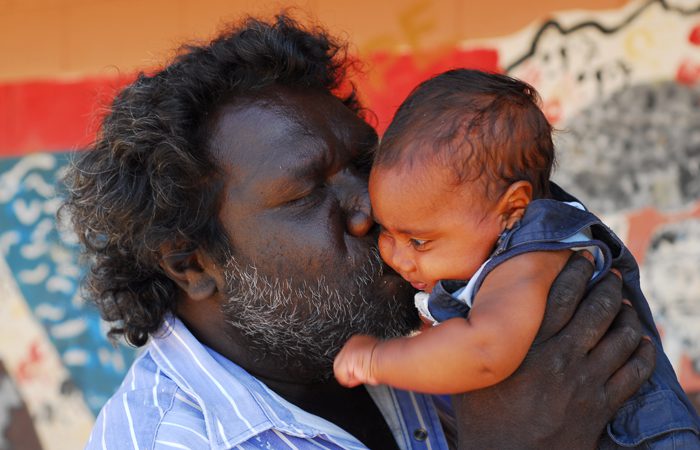Campaign achievements
Every year tens of thousands of people take action with us to fight injustice around the world. Here’s just a short summary of what they’ve achieved.
Australian Government to pilot mining transparency project (October 2011)
In July 2011 we asked supporters to write to the Treasurer to demand better transparency by Australian mining companies. These companies pay millions of dollars to governments in poor developing countries in taxes and fees, but this money can make poverty worse when used to fuel corruption. Over 400 supporters joined us to ask the government to support the Extractive Industries Transparency Initiative (EITI). Thanks to your support on 26 October the Australian Government announced its intention to pilot EITI! The inititative will inform the debate about whether Australia is getting a fair share from the mining sector, and sends a message to the world that Australia is serious about transparency in the sector.
What else can I do?
In February 2011 The Just Group was first publicly alerted to the serious health risks faced by workers involved in sandblasting denim. After months of no action, on 8 September 2011, Oxfam held a media action outside a Just Jeans store in Melbourne, calling on the company to put an end to sandblasting. We received extensive media coverage on SBS, and a large number of national newspapers. Just two weeks later the Just Group made a public announcement banning the purchase of sandwashed jeans.
What else can I do?
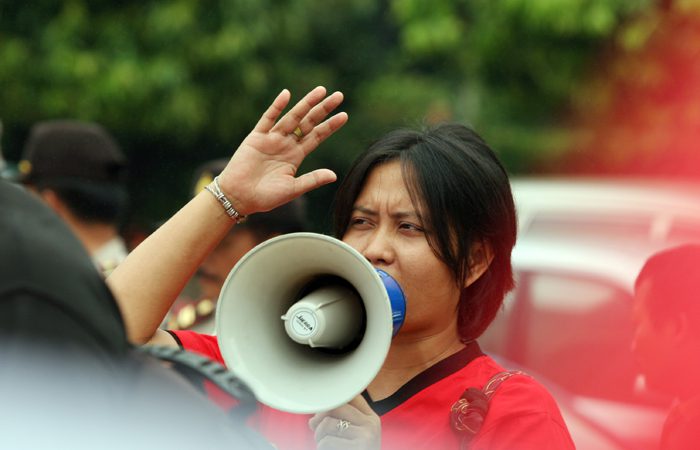
Historic agreement signed by Nike, adidas and Puma (June 2011)
On Tuesday 7 June 2011 in Jakarta, Indonesia, Nike, adidas and Puma signed a protocol which sets out guidelines on the implementation of freedom of association (FOA) at supplier factories in Indonesia. This is a huge step in allowing workers producing sportswear to join unions and negotiate for better wages and conditions. Oxfam Australia’s labour rights team has supported the FOA protocol negotiation process together with the Play Fair Alliance for the past two years and will be watching closely to ensure the protocol is implemented.
What else can I do?
Read more about why unions matter to sportswear workers.
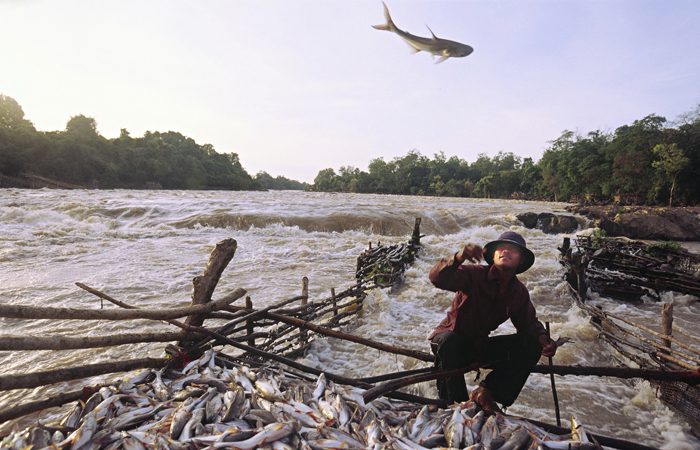
Xayaburi Dam put on hold (May 2011)
The Xayaburi Dam, which seriously threatens the ecological integrity of the Mekong River and the livelihoods of millions who depend upon her, was put on hold by the Government of Laos on 7 May 2011. The Save the Mekong Campaign, an international coalition of organisations (including Oxfam), played an important role in this outcome, raising awareness in the region and internationally about the devastating impacts of damming the Mekong. A number of Australian development NGOs (including Oxfam), and our supporters, wrote to Foreign Minister Kevin Rudd asking the Australian Government to ensure that the review of the Xayaburi Dam (which was funded by Australian aid money) was fair and transparent. Happily the Australian Government played a lead role in encouraging other donors to make a strong statement about the need for good process in decision-making around the proposed dam.
What else can I do?
Read more about the Xayaburi dam.
 Government should defer debate on nuclear waste facility (March 2011)
Government should defer debate on nuclear waste facility (March 2011)
Thank you to the 400 people who responded to our urgent action to write to the Government to oppose planned legislation to place a low-level nuclear waste facility on Aboriginal land in the Northern Territory. A number of Aboriginal traditional owners had lodged a case with the Federal Court contesting the plans, yet the Government was still pushing this legislation forward. Your pressure directly helped to influence the Senate to defer this decision, until after this case it resolved.
What else can I do?
Find out more about our ongoing work with the Indigenous community in Australia.
Thank you to the more than 1,000 people who signed our open letter to Adidas during 2009 in support of workers rights. You joined with thousands of other people around the world demanding adidas clean up its act.
What else can I do?
Find out more about our ongoing work with Adidas and have a look at our other worker’s rights actions you can take right now.
Save the Mekong (March 2010)
From late 2009, more then 530 people wrote to The Hon Bob McMullum MP, Parliamentary Secretary for International Development Assistance and The Hon Stephen Smith MP, Minister for Foreign Affairs, asking that they urge the Mekong River Commission Joint Council to make any information about the potential impact of the dams on the river freely available.
What happened?
Mr McMullum responded to our letter indicating that Australia had urged the MRC to increase transparency and public consultation about further basin development options. He also said that Australia will continue to monitor any dam proposals closely.
Write to Nike (February 2010)
Thank you to all the campaign supporters who helped us to achieve and surpass our initial target of 1,100 petitions to Nike CEO Mark G. Parker. We are currently compiling all of your responses to send to Nike’s head office along with our response to Nike’s most recent Corporate Social Responsibility report. Your action is an important part of a large international movement to demand that workers who produce Nike products are treated fairly and are paid a living wage.
What else can I do?
Visit TeamSweat — an international coalition of consumers, investors and workers also committed to ending the injustices in Nike’s sweatshops around the world. Nike of course aren’t the only company that we’re keeping an eye on — have a a look at our other actions you can take right now.
Close the Gap pledge
Since 2008, more than 145,000 have signed the Close the Gap pledge. This show of public support has contributed to a shift in political will to tackle the health crisis:
- In February 2008 came the long-awaited national apology to the Stolen Generations, a moment in time that re-energised Australians to right the wrongs of our past
- ln March 2008 the Close the Gap coalition drafted a plan to address the Indigenous health crisis: Prime Minister Kevin Rudd signed it, transforming this from a popular campaign to a force shaping government policy
- In November 2008 the Australian Government announced a $1.6 billion commitment to improve Indigenous health – the biggest ever injection of new funding for Indigenous health
- In November 2010 Prime Minister Gillard announced plans to hold a referendum to recognise Aboriginal and Torres Strait Islander People in the Australian Constitution
- In February 2011 Prime Minister Julia Gillard announced she will work with the National Congress of Australia’s First Peoples
